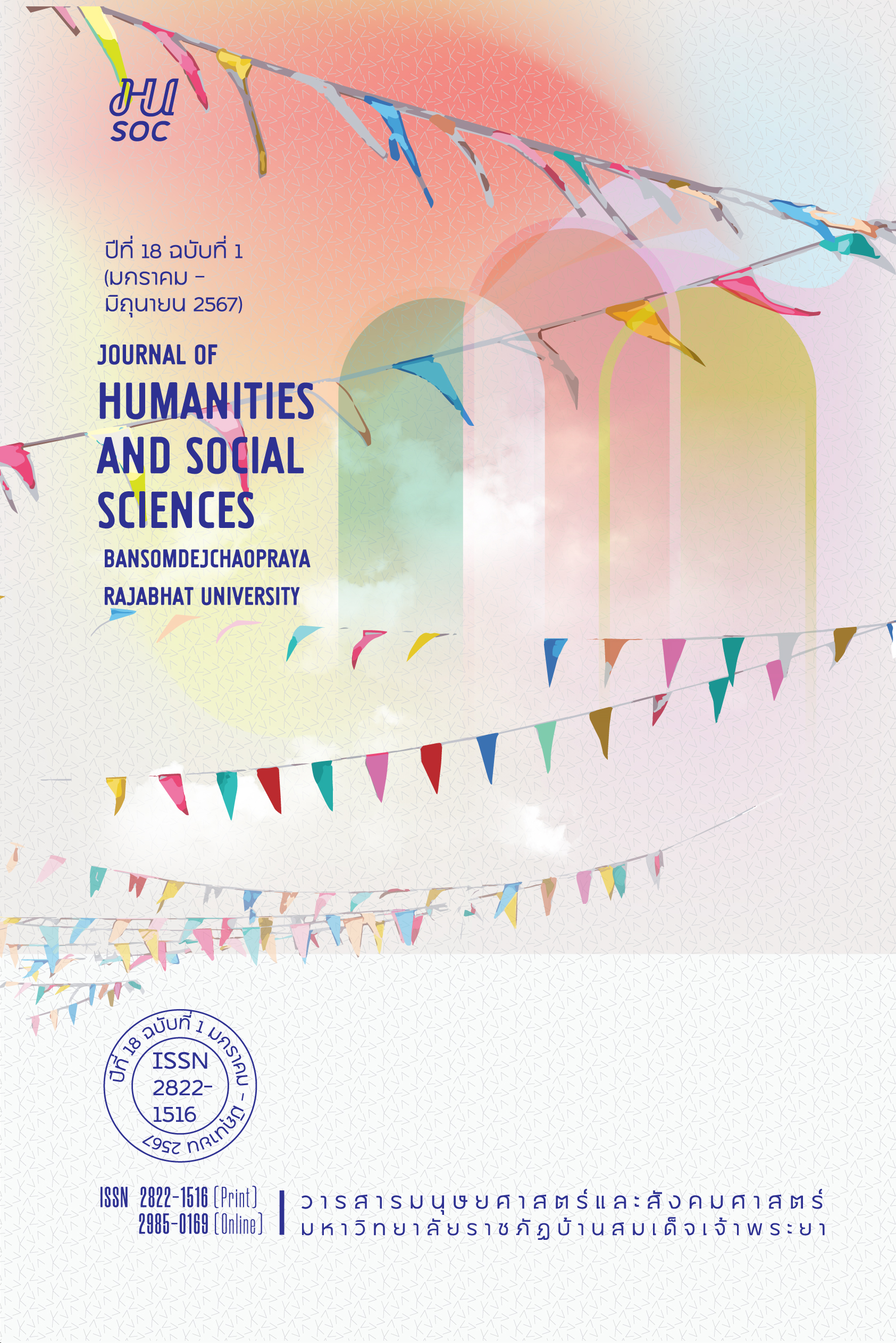“Happy Death Day” Impoliteness of Birthday Wishes Expressed in Facebook Comments
Keywords:
Impoliteness, Facebook, Computer-Mediated CommunicationAbstract
This research aims to examine causes of impoliteness found in Facebook comments below famous people’s birthday news posts. The data gathered was 1,220 comments on public birthday posts published on the official page of One News Agency during 11th August – 31st December 2021. The study discovered two categories of impoliteness triggers: conventionalized impoliteness triggers and non-conventionalized impoliteness or implicational impoliteness triggers. Conventionalized impoliteness triggers were divided into six types, namely insults, pointed criticisms/complaints, unpalatable questions and/or presuppositions, condescension, dismissals, and negative expressive. Moreover, three types of non-conventionalized impoliteness triggers were found, including the convention-driven, the form-driven, and the context-driven. The statistical data analysis showed that Facebook users applied non-conventionalized impoliteness triggers more frequently than conventionalized ones.
References
Angkunsinthana, N. (2018). Impoliteness Strategies in Thai. [Doctoral dissertation, Kasetsart University]. [In Thai]
Brown, P. & Levinson, S. C. (1987). Politeness: some universals in language usage. Cambridge University Press.
Bunnag, O. (2016). Impoliteness Strategies for Interviewing Celebrities by Alternative Television Channel Hosts. Chophayom Journal, 27(2), 13-23.
Culpeper, J. (1996). Towards an anatomy of impoliteness. Journal of Pragmatics. 25, 349- 367.
Culpeper, J. (2011). Impoliteness: using language to cause offence. Cambridge University Press.
Culpeper, J. (2016). Impoliteness strategies. In A. Capone & L. Jacob (Eds.). Interdisciplinary studies in pragmatics, culture and society (pp. 421- 445). Springer.
Culpeper, J., Bousfield, D. & Wichmann, A. (2003). Impoliteness revised: with special reference to dynamic and prosodic aspects. Journal of Pragmatics. 35, 1545-1579.
Burapha University. Faculty of Information. (2022). Moving Forward in Digital Society with ICT. Retrieved May 10, 2022. https://www.informatics.buu.ac.th. [In Thai]
Graham, S. L. & Hardaker, C. (2017). (Im) politeness in Digital Communication. In J. Culpeper, M. Haugh & D. Z. Kádár (Eds.). The Palgrave Handbook of Linguistic (Im) Politeness (pp. 785- 809). Palgrave Macmillan.
Kaewjungate, W. & Rattanadilok Na Phuket, W. (2018). Impoliteness Strategies on The Face Thailand TV Program. Journal of the Faculty of Arts Silpakorn University, 40(2), 177-201. [In Thai]
Likhit, W. (2018). Khamda Bap Thai Thai Tham Mai Tong Phat Phing Thueng Ma. Retrieved June 20, 2018. https://voicetv.co.th/read/ByKXfRRmX. [In Thai]
Natpratan, N. (2015). Private Verbs and Public Verbs in Thai Legal Language Political Language Media Language and Academic Language. Humanities Journal Naresuan University, 12(3), 107-126. [In Thai]
Panpothong, N. (2010). Pragmatic Analysis of Thai. Chulalongkorn University. [In Thai]
Pukbhasuk, P. (2016). Mongkhon Laklai Nai Kham Hai Pon Wan Koet. Thai Language and Literature, 21, 86-96. [In Thai]
Rabab’ah, G. & Alali, N. (2020). Impoliteness in reader comments on the Al-Jazeera chanel news website. Journal of Politeness Research, 16(1), 1-43.
Sawanglap, J. (2013). Impoliteness Strategies in Thai Reality Shows. [Master’s thesis, Chulalongkorn University]. [In Thai]
Srinarawat, D. (2001). Indirectness as a Communicative Strategy of Thai Speakers. Journal of Liberal Arts Thammasat University, 1, 85-101. [In Thai]
Downloads
Published
How to Cite
Issue
Section
License
Copyright (c) 2023 Faculty of Humanities and Social Sciences Bansomdejchaopraya Rajabhat University

This work is licensed under a Creative Commons Attribution-NonCommercial-NoDerivatives 4.0 International License.




